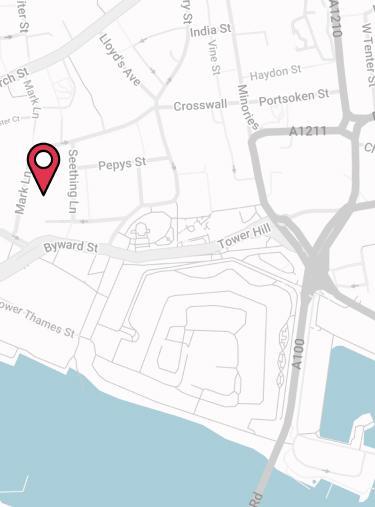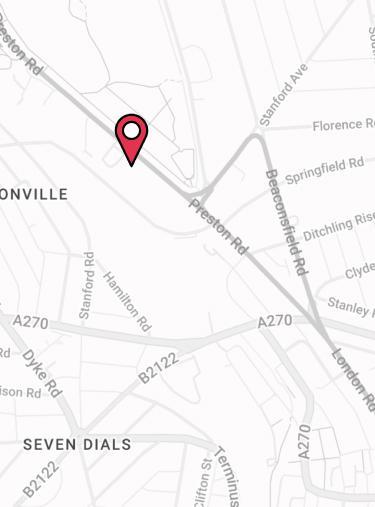
Whether you’re a startup relying on a founder with specialist knowledge, or a growing organisation with high-performing individuals – have you thought about what would happen if these people suddenly became unwell, or passed away?
This is where Key Person Insurance (commonly referred to as Keyman Insurance) comes in. But what exactly is it? And is it right for you? We’ll explore in this guide.
You can also compare instant online quotes from all the top UK insurers, such as Aviva, Vitality and more.
What Is Keyman Insurance?
Keyman Insurance is a form of both Business Protection and Life Insurance. It offers financial protection to businesses by paying out a cash lump sum if a key member of staff is lost as a result of:
- Death
- Terminal illness
- Critical illness.
Key Person Business Insurance is designed to cover any loss of revenue your company might suffer as a result of losing an important person.
There are several forms of business protection, many of which are designed to cover the life of a director or shareholder specifically. The beauty of Keyman Insurance is that it can cover anyone who’s essential to the everyday running of your business.
Who Is A Key Person?
So, how do you define who is a “key person” to your business? Put simply, it’s someone who is vital to your daily operations. This could be a director, an employee, or anyone whose unique skills, knowledge, and experience significantly influence your business’s success.
To understand their importance, ask yourself:
- Are there loans or financial obligations tied to this person?
- Would losing them affect your sales or revenue?
- How would their absence impact your future plans?
By answering these questions, you can start to pinpoint which of your employees are vital to the success of your business and therefore in need of protection.
Why Is Keyman Insurance Important?
According to Legal & General, 70% of businesses would fold in less than two years due to the sudden loss of a key person.
Unprotected businesses are therefore running the risk of severe disruption if they lose any of their key personnel. Such a loss can have a significant financial impact. It could leave you with unpaid company debts or even impact your ability to continue trading.
Key Person Insurance will never replace a business owner or star employee, but it’ll support your business financially should the worst happen.

Keyman cover can be a critically important way to protect your business from the financial impact of losing a vital person.
It allows for business continuity without a monetary loss. Yet, despite being such an effective form of protection, only 9% of businesses actually know about it.
Rauri Taylor
Independent Protection Specialist
Business Protection Client Stories
How Does Key Person Protection Work?
As a business owner, you can choose to take out Key Person Insurance for any employee you feel is indispensable. For example a:
- Founder
- Lead salesperson
- Web developer
- IT manager
- Operations manager
- Employee with lots of contacts
- Employee with unique skills and talents.
Your limited company or limited liability partnership will own and pay for the policy. If the individual who is insured is then unable to work due to death, a critical condition or terminal illness, the policy will pay out a cash lump sum to the business.
This money can then be used to help manage the impact of losing this individual. For example, you could use it to hire a new person or to train an existing member of staff. This can help safeguard your operations, provide financial stability, and ensure business continuity.
Different Types Of Key Man Insurance Cover
When it comes to Keyman Insurance, there are a couple of different options to choose from, including:
- Life Insurance
Provides a cash lump sum to the business if a key person dies or becomes terminally ill (diagnosed with less than 12 months to live) during the term of the policy - Critical Illness
For an extra premium, you can also provide Critical Illness Insurance alongside the Life Cover. This pays out a claim if the key employee suffers a serious illness, such as a heart attack, stroke, or cancer.
The level of cover you need will be unique to your business. It can vary significantly depending on certain factors such as the key person’s role and responsibilities, the company’s financial situation and the potential impact of losing them.
SPECIALIST TIP! 🤓
Not all serious conditions are covered by Critical Illness Insurance. Some diagnoses, such as less severe cancers, may not be included in your cover, or may only pay out a partial claim. It’s essential you check the policy wording or ask your adviser for assistance.
Do I Need A Keyman Insurance Policy?
Whatever industry you’re in, the one thing no company owner wants to think about is how the loss of a key worker will impact their business. Unfortunately, it’s something that every business should plan for.
But how can you determine if Keyman Insurance is the right protection for your business? Firstly, as morbid as it is, you need to think about the risks of losing a key person.
What’s The Risk Of Dying?
We realise it can be uncomfortable to think about this, but it’s important to evaluate the risks of unexpectedly losing a key employee. Planning for the worst-case scenario can help safeguard your business and your employees’ livelihoods.
According to the Office of National Statistics (ONS) life expectancy data, the chances of a healthy male passing away within the next 10 years are as follows.
Risk Of Death In 10 Years | Age | Risk |
|---|---|
35 Years Old | 1 in 62 |
45 Years Old | 1 In 29 |
55 Years Old | 1 In 12 |
What’s The Risk Of Suffering A Critical Illness?
Sadly, it’s not just the risk of death you’ll need to consider, but the risk of serious illness, too. The risk of falling ill is greater than the risk of dying younger. In fact, the Association of British Insurers has found that cancer, heart attacks, and strokes make up around 80% of critical illness claims.
- Cancer Research UK has found that around half of new cancer diagnoses each year are in people aged between 50-74.
- Research from the British Heart Foundation shows that almost 1 million people in the UK have survived a heart attack, while over 1.2 million people have survived a stroke or transient ischaemic attack (TIA). Almost half of these people are under the age of 75.
While Critical Illness Insurance covers serious illnesses, it doesn’t include less serious conditions, even if they stop you from working. Common causes of time off work include mental health conditions and musculoskeletal issues. This is what makes Key Man Insurance such a valuable type of protection for businesses.
A bit morbid we know, but the below tool works out the risk of you passing away based on ONS Life Expectancy Data 👇.
What Can Key Person Insurance Cover?
Many businesses would suffer a serious impact if they lost a key person, such as a founder, director, or star employee.
Businesses can use the payout from a Keyman Insurance policy for a variety of purposes, for example:
- Providing a buffer against loss of profits
- Paying for recruitment and training to replace the key person
- Repaying outstanding loans
- Making up for loss of important personal or professional contacts
- Assisting with loss of confidence from suppliers and customers
- Easing difficulties in raising finance for new developments
- Making up for loss of detailed business and process knowledge
- Winding down the company in an orderly fashion.
SPECIALIST TIP! 🤓
Using a specialist adviser, such as one of the team at Drewberry, offers you extra financial protection when purchasing protection insurance.
Additional Benefits
It’s not just core cover that Key Man Insurance can provide. Most Insurers will offer free additional benefits with their policies. For example, some providers offer extensive support services, including:
- 24 / 7 virtual GP service
- Physiotherapy sessions
- Counselling & stress helpline
- High street discounts and rewards for healthy living
- Keyman recruitment support
- Business legal and tax advice.
Again, it’s important to be clear about what you want to get out of your Key Person Insurance so that you end up with the most suitable cover.

For protection against a greater range of illnesses, many directors and small companies turn to Executive Income Protection.
This offers a continuation of income if you’re unable to work due to accident or sickness. What’s more, it can also protect your personal finances as well as a business loan.
Samantha Haffenden-Angear
Independent Protection Specialist
How Much Key Person Cover Do I Need?
One of the most important things to think about when taking out Key Person Insurance is how much cover you need.
How Do You Calculate The Value Of A Key Employee?
The process of calculating the right level of protection will depend on several factors. For instance, you’ll need to think about what role the person has, and how much it might cost your business if you lost them.
Sometimes, it’s external investors or lenders that help to define how much cover is required. Some require a benefit that reimburses the value of their investment. More demanding investors might also want to see their projected returns covered, too.
Even so, it often comes down to the business itself to decide who its key people are and their stakeholders’ expectations. One broad rule of thumb is that a key person should be covered for either:
- Twice their contribution to the gross profits, or
- Five times their contribution to net profits.
This isn’t a fixed formula, and there is no one-size-fits-all solution. The value of your Keyman Insurance policy will depend on your business and the people being insured, which is why it’s always best to get specialist advice.
Our team of specialists can help ensure you get the most suitable cover for your specific needs. If you’d like help, don’t hesitate to call 02084327333 or email help@drewberry.co.uk.
When Should I Take Out Key Person Insurance?
Whether your business is just starting or already established, there’s no perfect time to get key person insurance – the important part is understanding its value.
For a start-up, the success often hinges on one or two crucial individuals. Their absence could make or break the company. In contrast, larger businesses might have the resources to replace key staff, but the impact of losing a vital person can still be significant, especially with bigger overheads.
Every business faces unique challenges, but key person insurance offers a safety net, ensuring your company stays secure no matter what.
How Much Does Keyman Insurance Cost?
There are a number of factors that will determine the cost of Keyman Insurance. You can control some of the policy factors, such as the amount and term of the policy. However, other aspects that impact cost will be out of your control, for instance, the age and medical history of the person insured.
We’ve outlined some quotes below to give you an idea of how the costs of Key Person Cover could change based on a range of factors. All the quotes show monthly premiums.
Provider
Firstly, the provider you choose will impact what you pay. Each provider is unique and has their own approach to risk. Some specialise in high-risk occupations or hobbies, while others focus on more preventative services.
To illustrate how your choice of provider could impact the cost you pay, we’ve provided an example below. This quote is based on:
- A healthy 35-year-old company director
- £500,000 benefit
- Level cover
- 10 year term.
| Different Providers | |
|---|---|
 |
 |
| £15.31 per month | £14.16 per month |
Quotes correct as of October 2025.
Level Of Cover
The amount of cover (“sum assured”) that you’ll need will also impact the cost of your premiums. You may not have full control over this, as investors or lenders will sometimes require a specific amount of cover.
Having said that, we’ve gained some quotes for the same 35-year-old director we used before. This time, the figures show the monthly premium for two different benefit amounts. All the quotes are from the same insurer: Zurich.
| Benefit Amount | |
|---|---|
| £250,000 | £500,000 |
| £9.04 per month | £15.31 per month |
Quotes accurate as of October 2025.
Policy Term
There’s no specific term that Keyman Insurance should last for. You’ll need to think about how long the key employee is likely to stay with your company.
If they’re not a director or co-founder, you might set the policy term at 5 or 10 years and then review it at the end of that timeframe. But if the person insured by the Keyman Cover is a business owner, they might need the cover for longer.
We’ve run quotes for our 35-year-old company director, as before, but changed the policy term to give you an idea of cost. Both of these quotes are from Vitality.
| Policy Term | |
|---|---|
| 10 Years | 25 Years |
| £14.16 per month | £16.11 per month |
Quotes accurate as of October 2025.
Including Critical Illness Cover
Sadly, the risk of developing a critical condition during our working lifetime is much higher than the risk of dying. Since it adds more cover, you can expect to pay significantly more for including Critical Illness Insurance in your keyman policy.
Using the same healthy 35-year-old company director as before, we’ve shown the cost of a Key Person Insurance policy with and without £250,000 critical cover. Both quotes are from Vitality.
| Additional Critical Illness (CIC) | |
|---|---|
| Without CIC | With CIC |
| £14.16 per month | £59.75 per month |
Quotes accurate as of October 2025.
Age
The age of the person insured will also play a big role in how much a Keyman Insurance policy costs. As we age, the risk of falling seriously ill or dying increases.
To show how much age impacts premiums, we’ve provided examples below. The quotes are based on a £500,000 benefit amount, with a 10-year term. The director in question is a healthy non-smoker and all the quotes are from Zurich.
| Age Of Individual | |
|---|---|
| Age | Premiums |
| 35 years old | £15.31 per month |
| 45 years old | £32.87 per month |
| 55 years old | £84.31 per month |
Quotes accurate as of October 2025.
Medical History
Just like all forms of insurance, when you take out Key Person Protection, insurers will assess the risk of providing the cover. If the key employee has any existing health conditions, it may impact the cover you can take out.
For Life Insurance, a health condition might cause an increase to the policy premiums. This could be due to a high body mass index (BMI), a previous illness, or a chronic condition. For Critical Illness Cover, some providers might exclude a prior condition from the cover completely.
There are a number of health issues that might class someone as high risk in the eyes of an insurance provider. But each provider differs, and what one sees as high risk another might not. As such, it’s important to compare providers when doing your research.
Smoker Status
It’s known that smoking can increase the risks or severity of many health issues. As a result, many providers will charge higher premiums for Keyman Insurance when the insured person smokes. However, some providers have a ‘neutral’ approach to smoking, and don’t charge more.
To show how smoking can impact your premiums, we gained quotes for Key Person cover from Vitality. The figures are based on an otherwise healthy 35-year-old company director who wants £500,000 of level cover for 10 years.
| Smoker Status | |
|---|---|
| Smoker 🚬 | Non-smoker 🚭 |
| £27.45 per month | £14.16 per month |
Quotes accurate as of October 2025.
Occupation
The specific role the key employee has will also impact the premiums. Just like with the above factors, insurers base the cost of premiums on the level of risk you present, and some occupations pose a higher risk than others.
If the individual seeking cover works in a hands-on manual job, they’ll be seen as higher risk than an office worker, for example. With higher risk jobs, the likelihood of higher premiums increases.
Hazardous Hobbies
It’s not just the job role you do that insurers will look at. They’ll also consider whether you partake in any extreme sports or hazardous hobbies, as these would also put you in a higher risk category. These include:
- Diving
- Free style rock climbing
- Motor sports
- Bungee jumping
- Parachuting
- Piloting private aircraft.

Most online quote tools only show an initial premium, which doesn’t reflect any additional risk in terms of occupation, hobbies, or medical conditions, and the costs could change later.
We can work with providers to negotiate the best price on your behalf if your key person is higher risk. Just pop us a call on 02084327333 or email help@drewberry.co.uk
Samantha Haffenden-Angear
Independent Protection Specialist
How Is Keyman Insurance Cover Taxed By HMRC?
So, is Keyman Insurance tax deductible? This depends on the purpose of the plan, who will receive the benefit, and how HMRC treats this insurance.
The rules can be complicated and may appear quite arbitrary, as they depend on how your company plans to use the policy. We’ve outlined the main purposes of Key Person Protection below, as well as how HMRC classifies them.
Protecting Shareholders
- Premiums are rarely eligible for corporation tax relief as the plan covers profit loss, rather than the organisation
- A claim on plans that cover shareholders usually counts as a trading receipt, which means HMRC will also tax the payout.
Covering Employees
- HMRC usually regards such insurance policies as a benefit for the business. Premiums are therefore generally eligible for tax relief
- However, the benefit still counts as a trading receipt, and HMRC will tax a claim pay out.
Protecting Business Loans
- HMRC regards a Life Insurance policy for business loan repayments as a benefit for the lender, not the business. As such, you cannot deduct premiums against corporation tax
- However, as the payout from the policy is intended to rebalance the company’s capital account, HMRC does not generally class it as a trading receipt. Subsequently, it’s not typically liable for any tax.
The details above lay out the consensus on how HMRC taxes Keyman Insurance. However, we strongly recommend discussing your specific situation with your accountant and local inspectorate of taxes.
SPECIALIST TIP! 🤓
If HMRC taxes the payout, you’ll need to insure your key people for a larger sum than you need. This means you’ll be left with the correct payout after deductions.
Who Are The Best UK Keyman Insurance Providers in 2026?
We are an independent consultancy firm which provides quotes from all the leading UK Insurers. When carrying out a market review, we look at all the top UK providers, including:
- Aegon
- Aviva
- Legal & General
- Liverpool Victoria
- Royal London
- Scottish Widows
- Vitality
- Zurich.
No two insurers are the same. For instance, some cater to certain types of risk over others. This makes it really important to compare Keyman Insurance quotes from all the leading insurers when doing your research to find the best one for you.
Other Types Of Business Protection
It’s important to remember that Keyman Insurance is just one form of Business Protection. Before taking out a policy, you should understand what other options are available too. This will ensure you get the most suitable cover for your business.
Relevant Life Insurance
Relevant Life Insurance is a popular type of protection for company directors. In the event of the director’s death, the benefit amount doesn’t get paid to the business. Instead, the lump sum payment goes directly to the director’s loved ones.
It’s a cost-effective option, as Relevant Life premiums can be up to 50% cheaper compared to personal Life Insurance premiums.
Executive Income Protection
Executive Income Protection is another popular type of protection which suits business owners. This is because it can protect a proportion of their monthly income if unable to work due to accident or injury. What it won’t do, however, is provide a cash benefit in the event of death, critical illness or a terminal diagnosis.
For this to happen, you’d need to take out other protection to provide comprehensive financial cover. For example, you could take out Life Insurance and Critical Illness Cover. Critical Illness Cover can particularly work well alongside Executive Income Protection.
This is because insurers provide very specific definitions of critical conditions. If you don’t meet these definitions, a claim can’t be made. However, if you have Executive Income Protection and can’t work due to accident or injury, you could claim on this instead.
Shareholder Protection
Shareholder Protection is designed to pay out a cash lump sum in the event of a shareholders’ death. The benefit amount is then used to purchase the shares held by the insured individual from their beneficiaries.
This allows the remaining shareholders to maintain control of the company and protect the value of their own investments.
Frequently Asked Questions
What Is The Difference Between Keyman Insurance And Relevant Life?
The main difference between Keyman Insurance and Relevant Life is how the benefit is paid out. With Keyman Insurance, the benefit gets paid directly to the business. Relevant Life, on the other hand, sees the benefit amount paid directly to an employee’s loved ones.
Who Owns The Policy And Can This Be Changed?
The policy is owned and paid for by the limited company or limited liability partnership.
There are certain circumstances where you may want to change the ownership of the policy, such as if the organisation ceases trading or changes name. You can do this through a “deed of ownership”. However, to make such a change you will need to consult your solicitor.
Who Is The Beneficiary Of A Keyman Policy?
A Key Person Insurance policy is taken out by the business to insure an individual who is key to the company’s success. Should the key individual die whilst insured, the claim would be paid out to the company who is the beneficiary of the policy.
How Long Should Key Man Insurance Last?
Business requirements naturally change and evolve over time. As such, most Keyman policies are set up to last for 5 to 10 years, and are reviewed at the end of the term.
Should I Write Key Man Cover Into Trust?
In the vast majority of cases, the answer is no, Keyman Insurance policies don’t need to be placed into trust. This is because the business pays for the benefit and the insurance provider pays the benefit back to the business in the event of a claim.
Is Key Person Insurance A Business Expense?
If it is ‘wholly and exclusively’ for the benefit of the business, then usually the premiums qualify for tax relief, but any claim would be treated as a trading receipt and be taxed accordingly.
If the policy is for the benefit of a lender or shareholders, then it’ll not meet this rule and it’s unlikely the premiums will be tax deductible.
Compare Keyman Insurance Quotes And Get Specialist Advice
As you can see, there’s a lot to consider when setting up Key Person Protection. Your key people are your company’s greatest asset. So, it’s important to make the right choices that protect the financial success and wellbeing of your organisation.
Our specialist advisers can carry out the hard work on your behalf. We’ll listen to your needs, research providers, and make a specialist recommendation.
Why Speak to Us?
Employee benefits can be a headache. But our specialists do this day-in, day-out, offering first class service when you need it most. Here’s why you should talk to us:
- Award-winning independent employee benefits consultants, working with leading UK insurers and benefit providers
- Assigned specialist on hand to help – every step of the way
- 4100 and growing independent client reviews rating us at 4.92 / 5
- Authorised and regulated by the Financial Conduct Authority. Find us on the financial services register
- Claims support when you need it most.
If you need help protecting a key person in your organisation give us a call on 02084327333 or email help@drewberry.co.uk.
Contact Us
125-135 Preston Road
Brighton
BN1 6AF
Cookies
Drewberry™ uses cookies to offer you the best experience online. By continuing to use our website you agree to the use of cookies including for ad personalization.
If you would like to know more about cookies and how to manage them please view our privacy & cookie policy.













